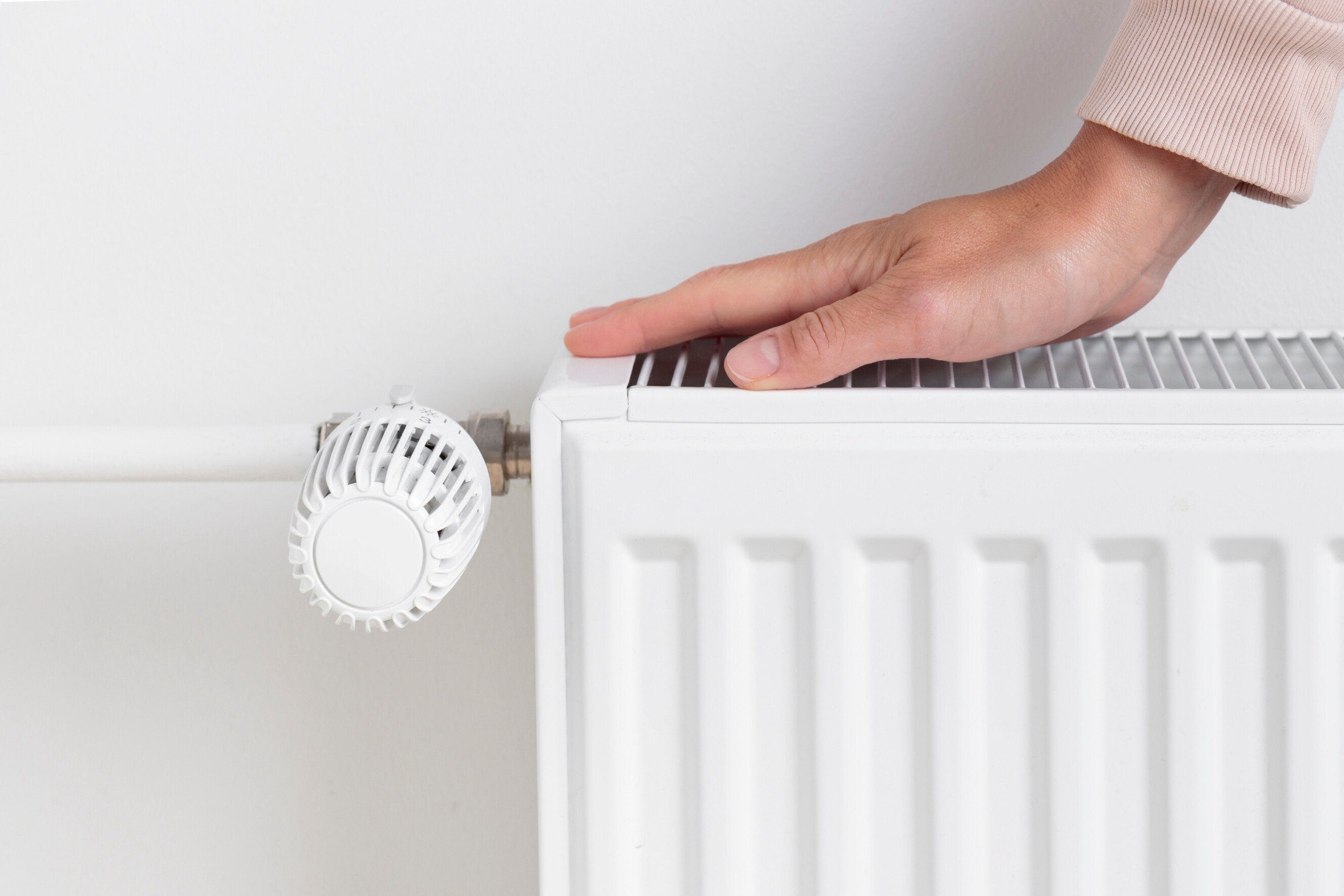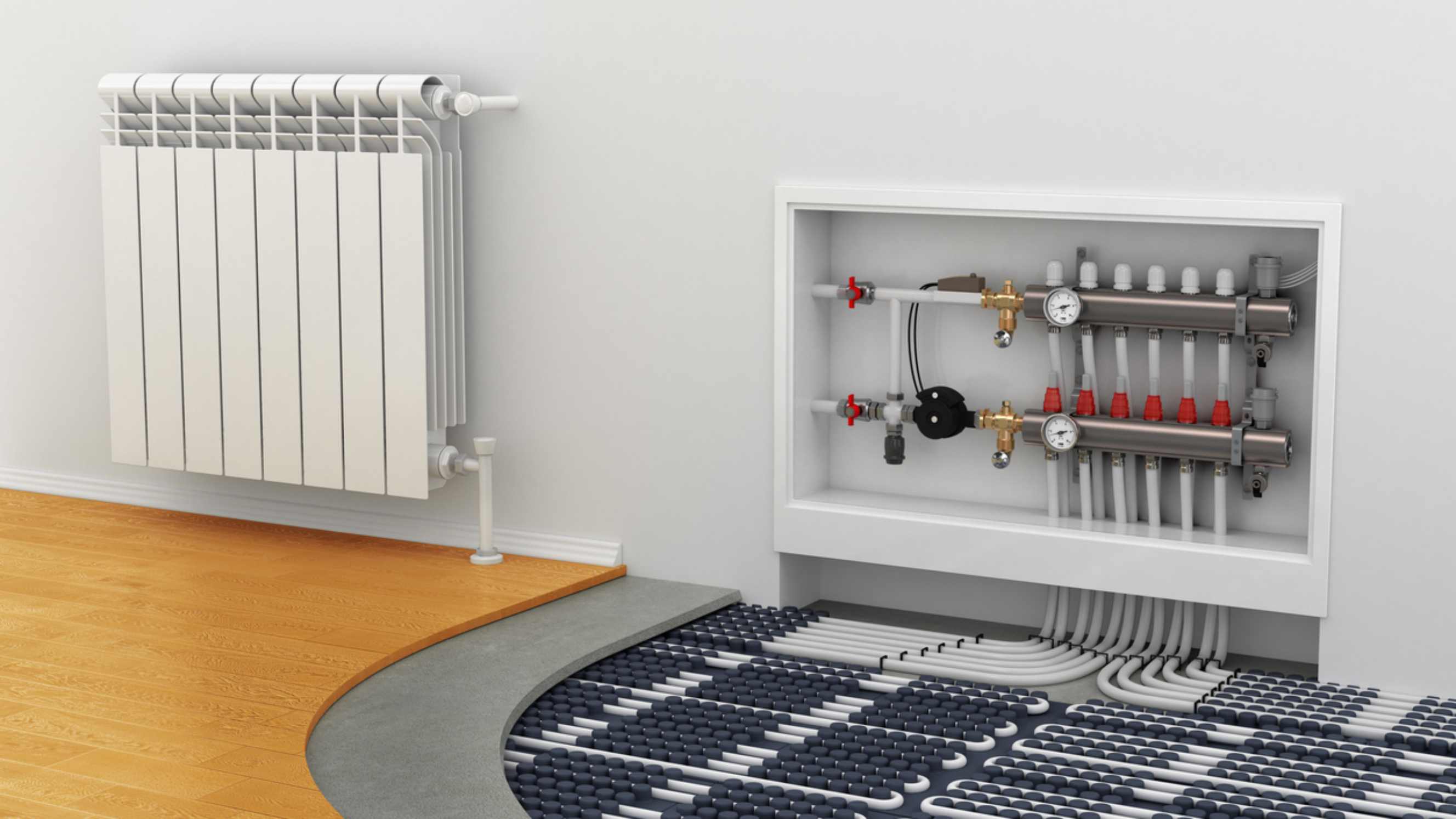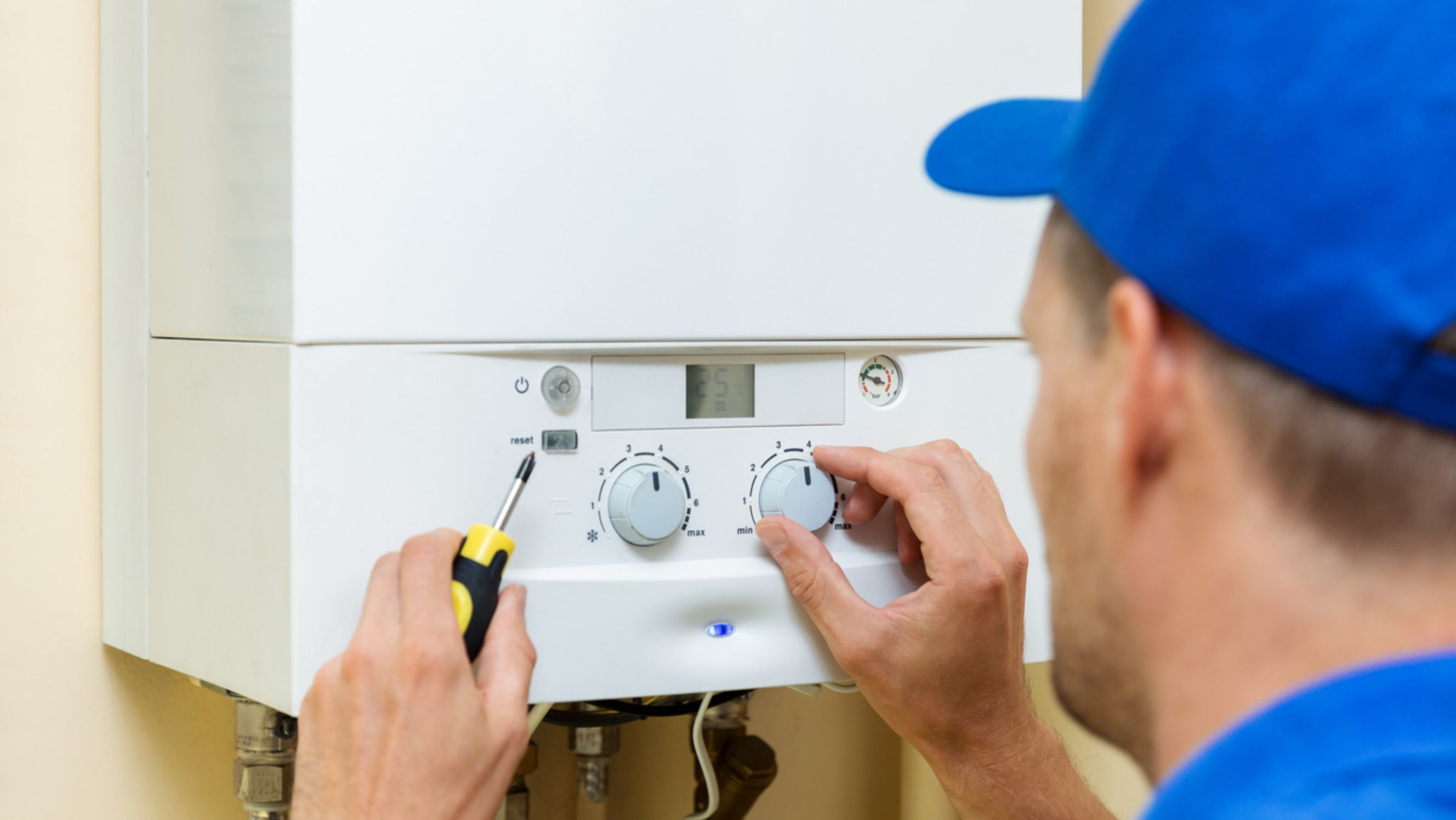
- Home/
- Comparisons/
- Electric Boiler Installation & Repairs/
- Electric Boiler vs Gas Boiler
Electric boiler vs gas boiler: Which is better for your home?
Comparing electric boiler and gas boiler based on their energy efficiency, heating time, cost, and more.
Last Updated on

Written by Jen A.
Staff Writer
Read more about our contributor
Key Facts
An electric boiler is a heating system that uses electricity to generate heat, typically used for central heating and hot water. It is compact, efficient, and ideal for homes without access to a gas supply.
A gas boiler is a traditional heating system that burns natural gas to produce heat. It’s a common choice in homes with a gas connection, offering high power output and lower running costs.
Choosing the right boiler for your home is an important decision, especially as heating and hot water systems account for a significant portion of your household energy use. Understanding the differences between electric boiler vs gas boilers can help you make an informed choice that suits your needs.
This guide on gas boiler vs electric boiler will break down the key factors, such as energy efficiency, environmental impact, running costs, and more, to help you decide which type of boiler is the better option for your home.
What is an electric boiler?
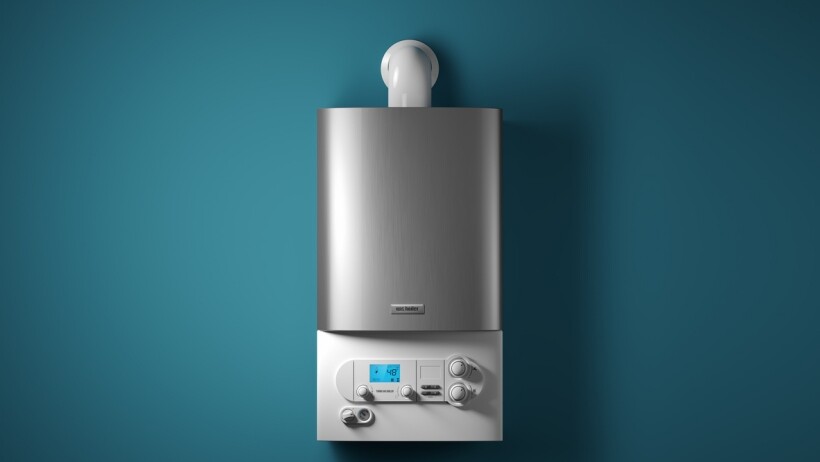 Electric boilers offer energy-efficient, quiet solution for heating your home (Source: iStock)
Electric boilers offer energy-efficient, quiet solution for heating your home (Source: iStock)
An electric boiler heats water using electricity, typically for use in central heating systems and domestic hot water. It doesn't rely on burning fossil fuels, making it a cleaner and quieter option.
This type of boiler is often smaller, easier to install, and can fit into compact spaces. They’re particularly well-suited for homes without a gas supply or for those looking to reduce their carbon footprint.
One major advantage of an electric boiler is that it can pair well if you’re planning to install solar panels, reducing your environmental impact and reliance on traditional energy sources. It’s also versatile and can work with a range of heating systems, including underfloor heating and radiators.
What is a gas boiler?
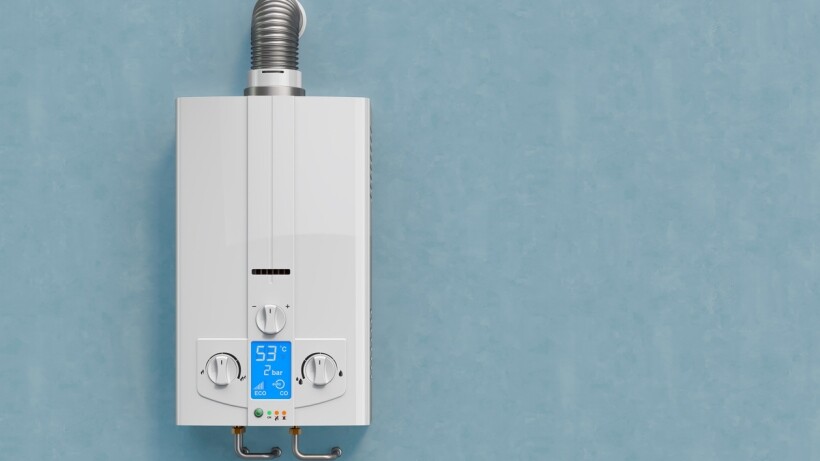 Gas boilers offer a powerful solution for heating larger homes and water systems (Source: iStock)
Gas boilers offer a powerful solution for heating larger homes and water systems (Source: iStock)
A gas boiler uses natural gas or liquid propane to generate heat, delivering hot water for taps and central heating. Gas boilers are known for their high power output, making them capable of heating larger homes efficiently. They’re also more cost-effective in terms of running costs, especially in areas where natural gas is cheaper than electricity.
However, gas boilers require regular maintenance, including annual servicing, and the installation process can be more complex due to the need for flue systems and ventilation. Additionally, they’re not as environmentally friendly as electric boilers, emitting greenhouse gases during operation.
Gas boiler vs electric boiler: What are their key differences?
Choosing between electric boilers vs gas for your home involves weighing up various factors such as efficiency, installation costs, running expenses, and environmental impact. This guide will walk you through the key differences between the two options, offering practical insights to help you decide which system is the best fit for your household and heating requirements.
In terms of energy efficiency
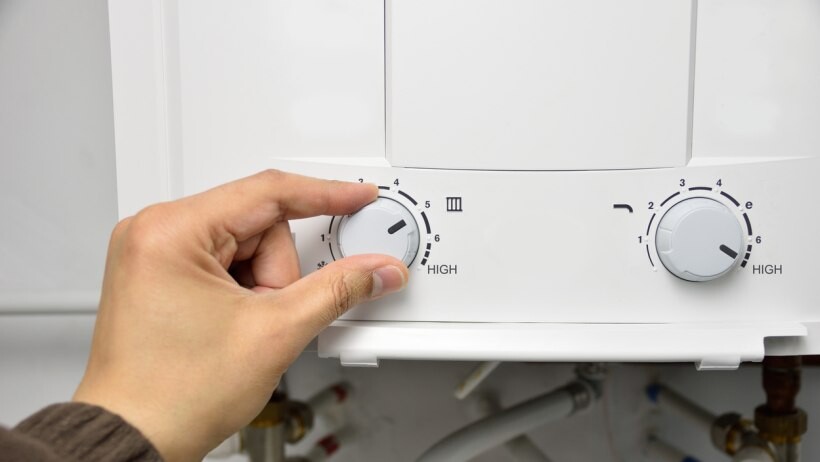 Electric boilers are your top choice for energy efficiency and reducing your carbon footprint (Souce: iStock)
Electric boilers are your top choice for energy efficiency and reducing your carbon footprint (Souce: iStock)
Electric boilers are highly energy efficient. Most models achieve close to 100% efficiency because they convert all the electricity they consume into heat. However, the overall efficiency depends on how the electricity is generated. If the electricity comes from renewable sources, the efficiency and environmental benefits increase.
Gas boilers, while efficient in their operation, lose some energy through exhaust gases, with efficiency rates typically around 90-95%. Although, modern condensing gas boilers are now designed to recover and reuse some of this lost energy, improving their performance.
In terms of environmental impact
Electric boilers are a cleaner option as they produce no on-site emissions, making them an environmentally friendly choice. They’re powered entirely by electricity, and when that electricity comes from renewable sources, their operation results in zero greenhouse gas emissions. This makes them ideal for households looking to minimise their carbon footprint.
In contrast, gas boilers rely on burning fossil fuel, which releases carbon into the atmosphere as part of their operation. This contributes to a higher carbon footprint compared to electric boilers, even if they’re efficient. While modern condensing gas boilers are designed to reduce emissions and improve efficiency, they still emit greenhouse gases that negatively impact the environment.
In terms of heating time
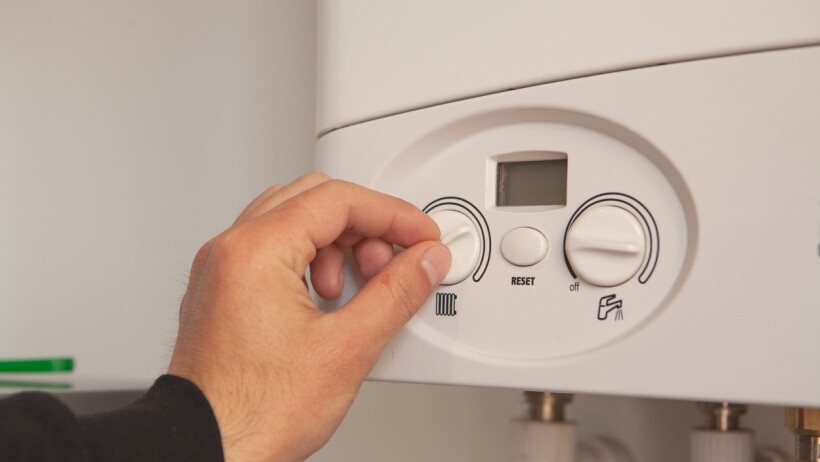 Gas boilers are ideal for quickly heating water in homes with high hot water demand (Source: iStock)
Gas boilers are ideal for quickly heating water in homes with high hot water demand (Source: iStock)
In terms of heating time, gas boilers heat water quickly, making them ideal for larger homes or households with high hot water demand. They can supply hot water to multiple taps simultaneously, providing a fast and reliable heating solution during colder months.
Electric boilers, while efficient, typically take longer to heat water compared to gas boilers. They’re better suited for smaller homes with moderate water usage. However, adding a hot water storage system can help improve the heating speed of electric boilers in larger households.
In terms of installation
Electric boiler installations are generally simpler and can be integrated with modern heating systems, such as underfloor heating. They don’t require flues or ventilation systems, which also means they’re more flexible in terms of placement. But, keep in mind that you’ll still need a qualified electrician to safely connect the boiler to your home’s electrical system.
The average cost of installing an electric boiler in the UK is around £1,750, making it a cost-effective option for homes without a gas supply.
Gas boilers require additional components, such as flue pipes and ventilation, making the installation process more complex and often more expensive. You’ll also need a qualified gas safe registered engineer for the job.
The average cost of installing a gas boiler typically ranges from £2,000 to £3,000, depending on the complexity and the type of boiler being installed.
In terms of running costs
 When choosing between gas vs electric boilers, it's important to balance running costs with environmental benefits (Source: iStock)
When choosing between gas vs electric boilers, it's important to balance running costs with environmental benefits (Source: iStock)
Electric boilers tend to have higher running costs due to the price of electricity, which averages around 24.50p per kWh in the UK. For example, operating a 12kW electric boiler for 70 hours a month can cost approximately £206, making them a more expensive option during colder months when heating demand is high.
Gas boilers are generally cheaper to run, with natural gas costing around 7p per kWh. Running a gas boiler for the same 70-hour period would cost about £120, significantly less than an electric boiler. However, factors like boiler efficiency, the home’s insulation, and maintenance can impact the overall operating costs.
In terms of maintenance
Electric boilers have fewer moving parts and don’t require components like flues or gas supply lines, making them easier and cheaper to maintain. Annual checks are still recommended but are generally simpler and less costly.
Gas boilers, however, require regular servicing to ensure safety and efficiency. This includes checks for gas leaks, carbon monoxide emissions, and wear on key components.
Enjoy hassle-free boiler installation with Airtasker
No matter your priorities—be it energy efficiency, lower running costs, or reducing your carbon footprint—choosing the right boiler is crucial for a warm, comfortable, and sustainable home.
Whether you’re opting for a new electric boiler or upgrading your existing gas boiler, Airtasker can help you find trusted and experienced professionals to handle your boiler installations.
Get started today and enjoy the benefits of a reliable heating and cooling system tailored to your home’s needs. From your electric boiler installation to repair and maintenance needs, Airtasker can help you find the right person who can make the process seamless for you.
Learn more about our contributors

Written by Jen A.
Staff Writer
Jen Avelino is an experienced writer and editor with over five years of experience. She has written for industries such as eLearning, architecture, and the gig economy, but she’s most passionate about home-related topics like renovations, cleaning, and handyman tips. Outside of writing, Jen is a coffee lover, runner, and fitness enthusiast, which often inspires her lifestyle content.
Electric Boiler vs Gas Boiler
| Electric Boiler |
Gas Boiler |
|
|---|---|---|
| Energy Efficiency |
Highly efficient; close to 100% energy efficiency as all electricity is converted into heat |
Modern models achieve 90-95% energy efficiency, but lose some energy through exhaust gases |
| Environmental Impact |
Produces no on-site emissions and can run on renewable energy, minimising carbon footprint |
Burns fossil fuel and releases carbon into the atmosphere, contributing to a higher carbon footprint |
| Heating Time |
Slower to heat water |
Heats water quickly |
| Installation |
Easier and cheaper to install, with no need for flues or ventilation |
More complex and expensive installation due to requirements like flues and ventilation systems |
| Running Costs |
Higher due to electricity costing | Lower with natural gas costing |
| Maintenance |
Simpler and cheaper to maintain |
Requires regular servicing to ensure safety and efficiency |
FAQs on electric boilers and gas boilers
No, an electric combi boiler is typically more expensive to run than a gas boiler due to the higher cost of electricity. These boilers are compact systems that provide both heating and hot water, converting nearly all electricity into heat for maximum efficiency.
Yes, you can switch from a gas boiler to an electric boiler. The process involves removing the existing gas boiler and installing the electric boiler, which is generally simpler as it doesn’t require flues or ventilation.
Yes, electric boilers are compatible with radiators and can replace an electric heater or upgrade your central heating system, offering a more energy-efficient solution for your home. You can also integrate it seamlessly into existing central heating setups, ensuring consistent and efficient heat distribution through your radiators.
Find electric boiler installation & repairs experts, fast
Post a task
Related articles
